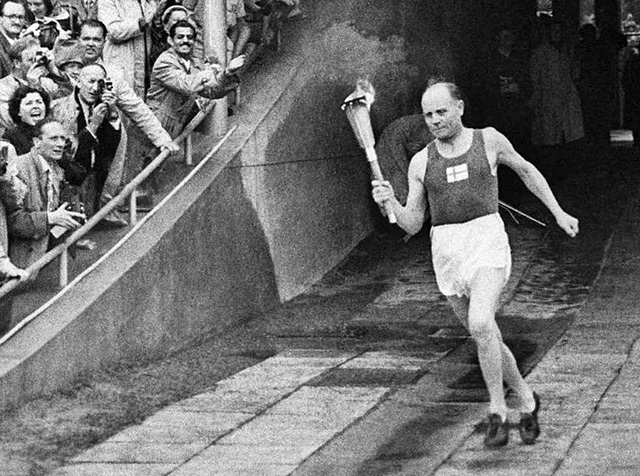Finland first competed at the Olympic Games in 1908. At the 1908 and 1912 Games, the Finnish team competed as a team from the Grand Duchy of Finland (the Grand Duchy of Finland existed between 1809 and 1917 as an autonomous part of the Russian Empire). Finland competed for the first time as a fully independent state in 1920.
At their first appearance in 1908, Finnish athletes won a total of five Olympic medals (one gold, silver and three bronzes). Wrestler Verner Weckman became the first Finnish Olympic gold medalist when he defeated fellow-Finnish wrestler Yrjö Saarela in the Men's Greco-Roman Light-Heavyweight division but he certainly will not be the last.
Finland has never missed a single Summer Olympics since their debut in 1908, and was once one of the most consistent powerhouses in the Summer Games. However, their success is waning. Up until 2000, they won a gold medal at each Games they participated in, though they have only won one gold medal since then (incl. 2021). Finland are still the most successful country at the Olympic Games when the medal count is relative to population size.
Finland also hosted the 1952 Summer Olympics in Helsinki where they also managed a respectable 8th place overall finish out of a total of 69 participating countries.
 Finnish athlete Paavo Nurmi entering the stadium in 1952
Finnish athlete Paavo Nurmi entering the stadium in 1952Paavo Nurmi is no doubt the greatest Finnish Olympian of all-time and one of the greatest athletes in the world as well as he collected 12 Olympic medals (9 gold and 3 silver) at distances ranging from 1,500 meters and 20 kilometers.
For the Winter Games, the story is not that different for Finland. They are still one of the forces to be reckoned with, winning Olympic medals since their debut in 1924 where they ranked 2nd overall in a total of 16 participating nations. Finnish speed skated Clas Thunberg took a total of three gold medals and fellow speed skater Julius Skutnabb won another one. In their Winter Games debut, Finland won a total of 11 Olympic medals. That set the trend for the following Winter Games where they have consistently ranked one of the top teams in every single meeting.
Trivia
- Finland have hosted the summer Olympic Games once, in Helsinki 1952. They were also scheduled to host the Olympics in 1940 when Tokyo pulled out, however the Games were canceled altogether after the outbreak of WW2.
- At the opening ceremony in 1908, the Finnish team refused to carry a flag when they were told that they would have to march under the flag of Russia.
- At the 1912 Olympic Games opening ceremony, Finland's team paraded under the national insignia flag of a Swedish-speaking female gymnastics club in Helsinki.
- In Stockholm, 1912, Finland began its domination of long-distance running events, when Hannes Kolehmainen won three gold and one silver medal.
- A wrestling bout in 1912 between Estonia's Martin Klein and Finland's Alfred Asikainen lasted 11 hours and 40 minutes before Klein finally won.
- One of Finland's greatest Olympians is Distance runner Paavo Nurmi. In 1920, Nurmi won three medals for Finland. At the following Olympic Games in 1924, Nurmi won five gold medals; with his Finnish teammate Ville Ritola winning four gold medals. In 1928, Paavo Nurmi picked up another three medals, including one gold.
Related Pages
- Finland at the Winter Olympics
- The Russian Empire at the Olympics
- More trivia from each Country at the Olympic Games
- Helsinki Olympic Games 1952
- About sport in Finland


 Upcoming Events
Upcoming Events